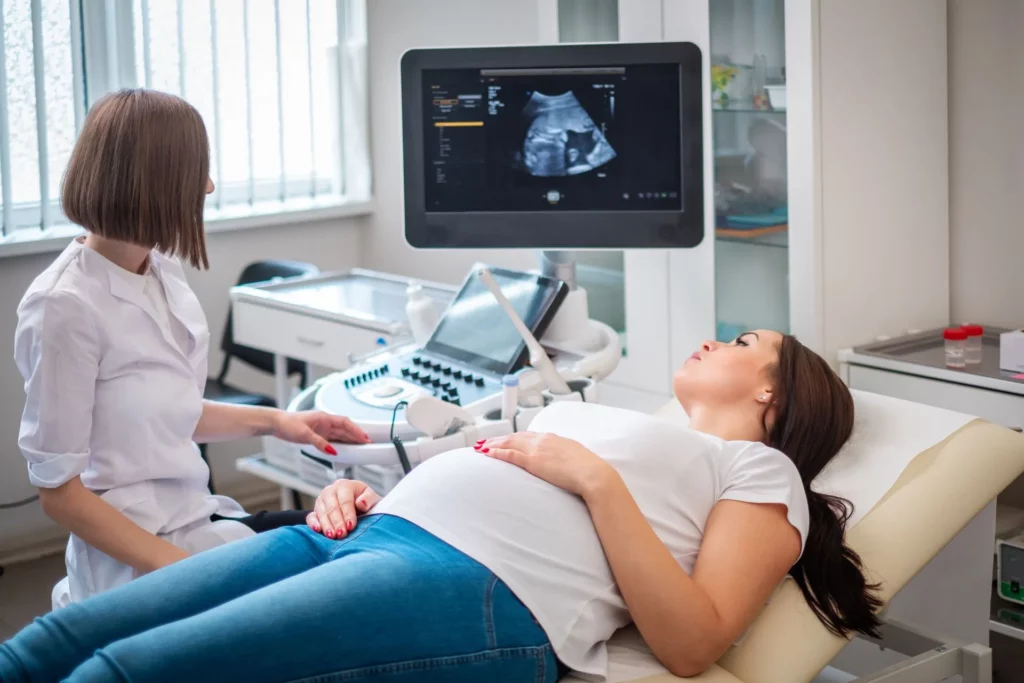What is a Crisis Pregnancy Center (CPCs)?
What is a Crisis Pregnancy Center?
Crisis pregnancy centers, or more commonly referred to as Pregnancy Resource Centers, are limited medical facilities designed to provide a range of services to women who are pregnant or suspect they may be pregnant. These centers are typically staffed or overseen by licensed medical personnel along with pregnancy counselors and/or volunteers.
What Services do CPCs Provide Pregnant Mothers?
Crisis pregnancy centers often offer lab-grade pregnancy tests along with free ultrasounds to confirm if a woman is pregnant, accurately note the age of the fetus, and determine if the pregnancy is viable. CPCs may also offer STD testing, as an undiagnosed and untreated STD can cause complications for the fetus and the mother even if the mother opts to have an abortion instead of carrying the baby to term.
Additionally, crisis pregnancy centers provide pregnancy consultations to help women make well-informed medical decisions. These consultations are confidential and include information about abortion, full-term pregnancy, and adoption. Many centers also offer free assistance for pregnant women who need help applying for financial assistance or prenatal care, along with supplies for a new baby.

Why Might CPCs Be Considered Dangerous?
As abortion has become a hot topic in just about every city and state in the United States, it is not surprising that a great deal of misinformation about crisis pregnancy centers (or pregnancy resource centers) has circulated online and offline. There is a common misconception that CPCs engage in deceptive practices to force or coerce women into keeping an unwanted pregnancy. There are also oft-repeated falsehoods stating that CPCs are not staffed or overseen by licensed medical personnel and that they provide misinformation in an attempt to convince pregnant women to carry a baby to term.
The truth is that many crisis pregnancy centers around the nation provide a vital service to women of all ages and walks of life, including women who have already decided to have an abortion. Knowing the age of the fetus is imperative to determining when and how to obtain an abortion, as the FDA has only approved abortion medication up until the tenth week of gestation. Checking the viability of a pregnancy is likewise important; 10-20% of pregnancies end naturally in miscarriage and women planning on either carrying the baby to term or having an abortion should know, as early as possible, if the baby isn’t viable.
Not all crisis pregnancy center employees and volunteers are licensed medical service providers; however, those who provide medical services are licensed to provide the services they offer at the clinics. If women who enter a center are found to be in need of other services, as would be the case if a woman has an ectopic pregnancy or complications that could put the life of the mother and/or baby at risk, CPCs immediately refer such women to a hospital or medical clinic for needed medical care.
What’s more, crisis pregnancy centers, unlike most hospitals and clinics, make it a priority to equip pregnant women with clear information outlining all their options. Pregnancy is an emotionally difficult time even when the pregnancy is planned, and it can be far more turbulent if the pregnancy is unplanned and a woman does not have the financial resources and emotional support she needs during her pregnancy. Some pro-choice advocates have criticized crisis pregnancy centers for not pushing women to obtain an abortion in such circumstances; however, many CPCs make it clear that they do not provide or refer for abortion services. Rather, CPCs provide women with the resources and help they need during and even after pregnancy to make it possible for women who would like to carry a baby to term to be able to do so.
The Importance of Exploring All Reproductive Healthcare Options
While abortion is commonly viewed as the best or even only option for dealing with an unplanned pregnancy, it is not the only one. Carrying a baby to term and raising a child is certainly daunting, so it is natural that many women who get pregnant unexpectedly would feel they are not up to the challenge. However, as CPC pregnancy counselors point out on a daily basis, there are resources available to women who carry a baby to term, including financial and practical assistance for those who have limited financial resources. What’s more, equipped with information, resources, and support, many women find that parenting a child has rewards that outweigh the sacrifices. Adoption is yet another option that pregnant women may want to consider, and they should have the opportunity to do so.
What’s more, women who are considering an abortion should be informed that there are potential emotional risks involved in such a procedure. While popular surveys tout the fact that most women who have an abortion say they don’t regret their decision, medical studies clearly show that women who have an abortion experience an 81% increased risk for mental health problems, including anxiety disorders and depression. What’s more, women who have an abortion are far more likely to misuse alcohol, use marijuana, and even commit suicide than women who have not had an abortion.3 Such studies don’t get much air time in a culture that promotes “choice” above all other options, but they have been conducted by reputable medical professionals not connected with pro-life groups and pregnant women should know that ending a life via abortion isn’t always as easy or convenient as it is made out to be.
What is a crisis pregnancy center? In short, it is a place where pregnant women can obtain important pregnancy related medical services at no cost. For those who want it, consultations are available as well to help women explore all the options before deciding on how to proceed with an unplanned pregnancy. If you or someone you know can benefit from our services, get in touch with us at your convenience and our team will do everything in its power to provide you with the care, support, and practical help you need and deserve.
